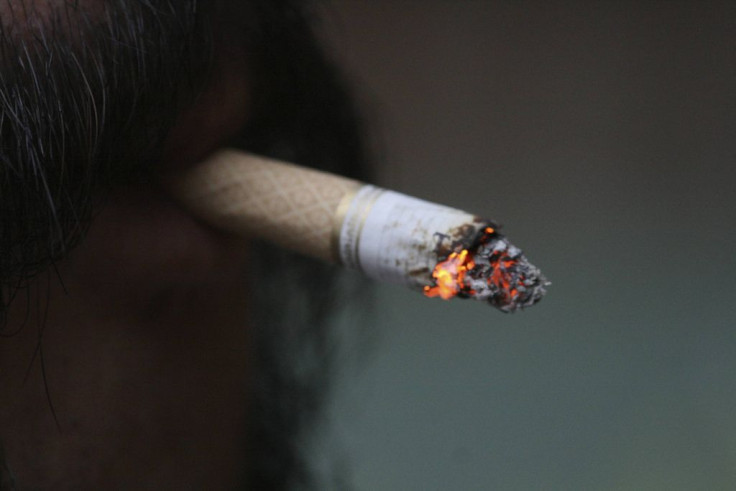Smokers' Bones Heal Slower Than Non-Smokers': Molecular Damage Makes Bone-Healing Cell Divide Less

New research shows that smoking may slow down bone healing, adding yet another health consequence of the habit responsible for nearly half a million U.S. deaths annually.
Dr. Mohammed Maqsood, an orthopedic consultant at Lincoln County Hospital in the UK and one of the investigators, said that the findings come after several years of research. “We set up the research looking at the factors which affect the healing process of fractures in 2007, which involved collecting the blood from consenting patients, both smokers and non-smokers, who have suffered tibial fractures and had been admitted to Lincoln County Hospital for surgery,” he explained.
“We also set up a ‘smoking machine’ which simulates smoking 20 cigarettes per day to study the effects of smoking on the blood in a controlled environment,” he added.
To investigate the impact on fracture healing, the researchers scanned each blood sample for stem cells involved in bone regeneration. By evaluating the quality and quantity of these cultures, they were able to determine that smokers have bone-healing cells that are less active and slower at dividing than those of non-smokers.
According to Dr. Andrew Sloan, another researcher attached to the project, the detrimental impact of smoking was visible on very small scales. “[We] showed how the molecules that mediate certain cellular processes were being hampered by the toxic effects of the tobacco smoke and its constituent components,” he explained.
Smoking and Your Health
Today, smoking and secondhand smoke is thought to be the direct cause of over 480,000 deaths in the U.S. alone. It is estimated that about half of all smokers now die from emphysema, cancer, or other serious complications arising from the habit. According to the Centers for Disease Control and Prevention, tobacco use costs the nation about $298 billion each year.
But like the new study shows, visible adverse effects of smoking can kick in years before any life-threatening symptoms appear. Another example is a 2013 study from Uppsala University in Sweden, which shows that smoking may cause so-called epigenetic alterations in your DNA. These deleterious changes can impair important biological functions like immune response and sperm count.
“I felt a real sense of achievement when we were able to do this, as only one group in the world had written about this methodology previously,” Sloan said of the results. The next step, he says, is to look at ways to stop and reverse the molecular and cellular damage of smoking.



























